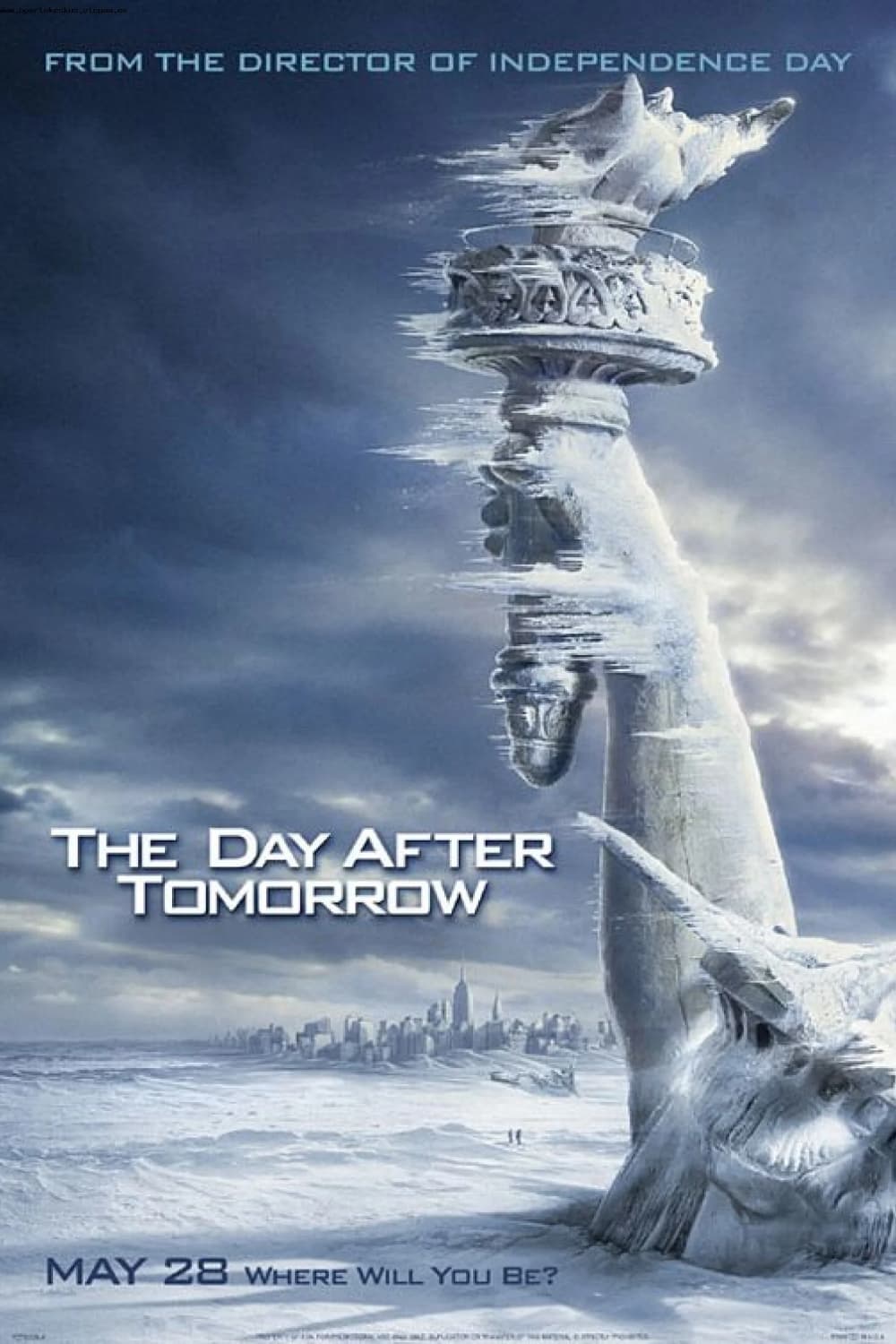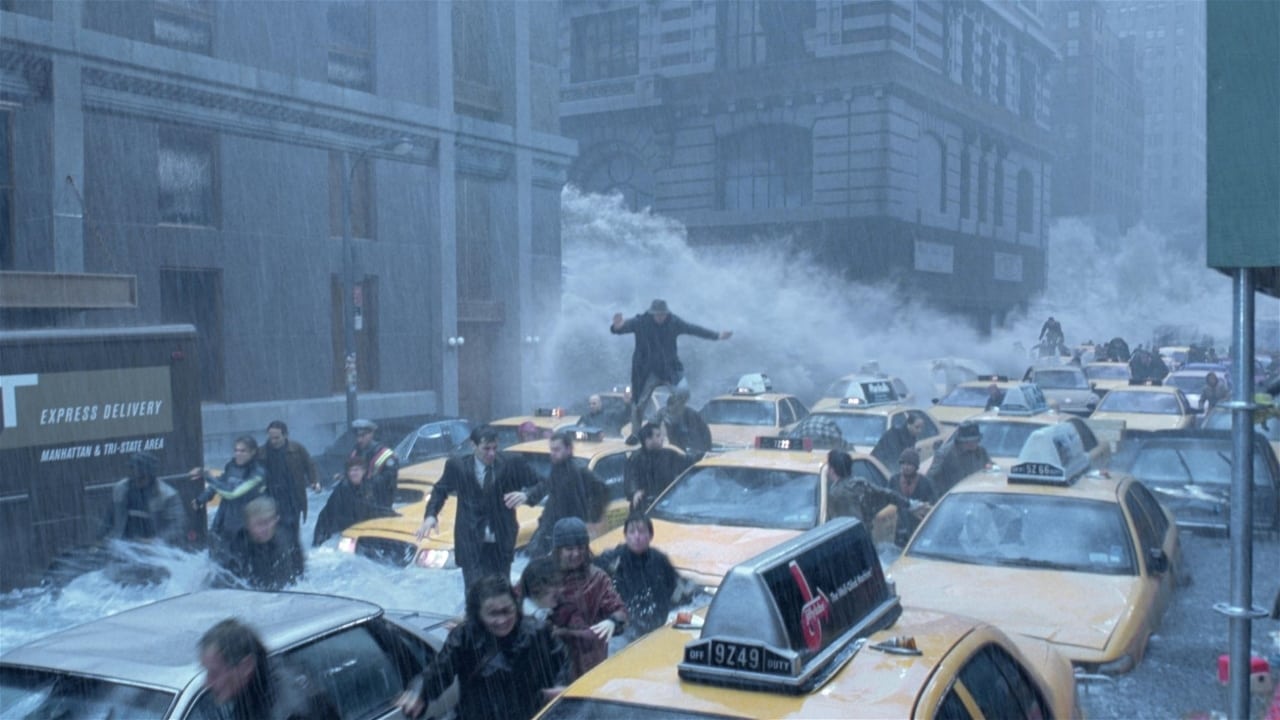
Apocalypse Week: Death by global catastrophe
"There's nothing I like less than bad arguments for a view that I hold dear."The Day After Tomorrow is, in a certain light, one of the very oddest blockbuster movies of the 2000s. One of the immutable truths of blockbuster filmmaking is that most really expensive Hollywood tentpoles go as far as possible out of their way not to mean anything, for if a story means something - if it espouses an opinion about the way life is lived, for good or ill - there is a better chance of it offending somebody, and the one thing that is deeply important for a film that needs to clear a quarter of a billion dollars internationally just to break even, is that nobody gets offended. The result is that very few big movies have much of anything to say, or they try to say everything, so that everybody sees their own beliefs reflected somewhere. This holds doubly true when there's even a whisper of politics involved.
-Daniel C. Dennett
And yet, this massive, expensive disaster movie does double-duty as an urgent, lecturing message movie about climate change, which in the United States is about as politically touchy a subject as they come (and it's worth pointing out, the film did two-thirds of its business outside of the U.S.). If there's another major effects-driven release from that decade to take such an overt stance on any vaguely controversial political topic, I surely can't name it.
The bad news is that The Day After Tomorrow was directed and co-written by Roland Emmerich - making his first movie in twelve years without producing partner Dean Devlin - a man whose facility with sensitive, intelligent, nuanced argument-crafting has not yet been tested by any of his projects, but whose skill at destroying New York City in convincing if not remotely exciting ways is the very heart and soul of his art. There are, undoubtedly, ways of graphically depicting the destructive effects of climate change in a way that marries visceral thrills with thoughtful explication of why this is happening and how it can be stopped before time runs out, but we would do better not to look to the mind behind the unspeakably tedious American Godzilla to find those ways. In fact, there was no small amount of concern at the time of the movie's 2004 release that The Day After Tomorrow would end up hurting the environmentalist causes it was nominally supporting, on account of being so incomprehensibly stupid and spitting out bad science at a rate that can hardly be quantified; nothing as spectacularly garish as Emmerich's next disaster movie, 2012, which bases its entire drama on the existence of "mutated neutrinos", a concept that reveals a profound misunderstanding about the nature of mutation, or neutrinos, or probably both. But there's something awfully special about TDAT's apparently earnest belief that ice ages occur in something like the fashion of a sci-fi freezing ray, creating a wall of instant-death freezing air that can, literally, be outrun.
As a plot, the film is a remarkably pure example of disaster movie tropes as they were perfected in the 1970s; it is the most vigorously clichéd of Emmerich's four disaster films (those I have named, and the one that started it all, Independence Day), though not by accident or incompetence I suspect. Still, when a film can be casually described as "like Independence Day, but with more clichés", we're really just staring into the black void of oblivion. Anyway, we've got a scientist, Prof. Jack Hall (Dennis Quaid), who makes an important discovery about the nature of global warming, and attempts to present it to the world, but the world yawns and looks away, most conspicuously U.S. Vice President Fakecheney (Kenneth Welsh). Only one scientist, Terry Rapson (Ian Holm) believes in Jack's warnings, for he has collected data himself which suggests a massive, abrupt drop in ocean temperatures is just in the offing, and the two collaborate on a study that might suggest a way to prevent disaster; but disaster is closer than even they think, in the form of a series of major storms, the first of which sends a cluster of tornadoes into Los Angeles, destroying it. But this is merely the orchestra tuning up compared to the main event; a massive cluster of gigantic hurricane-like storms in the North Atlantic, threatening to cover Europe and most of North America under a blanket of freezing water.
All of which is well and good, except that Jack also has an ex-wife, Lucy (Sela Ward), and strained relationship with his son, Sam (Jake Gyllenhaal), and it's his attempts to rescue Sam after New York is turned into a hell of ice and flooded streets that form what passes for narrative thrust in the back half of the film, it being the nature of worldwide disasters in movies of this sort to reunite broken families.
A trite script - and "trite" really isn't doing justice to the degree to which The Day After Tomorrow has not a single thought, character, or line of dialogue that hadn't been run into the ground by the beginning of the '80s - is maybe the worst of the film's sins, but hardly the only one: of far greater concern to the film's actual purpose, which is neither dramaturgy nor consciousness-raising, but exciting the more prurient part of the audience's brain by demolishing things through the best CGI that 2004 money could buy - and, except for the odd effect here or there (a wide shot of a giant wave approaching New York looks unforgivably bad), the effects in The Day After Tomorrow hold up much better than most mid-'00s films. The Emmerich of Independence Day knew how to make that film's solemnly overstuffed 145 minutes click by with regular explosions of increasing grandeur; the Emmerich of 2012 was able to keep that film's 158 minutes afloat through an idiotic escalation of conflicts even after all the conflicts seemed wrapped-up (the "let's just throw the Himalayas at them" approach). Neither of those movies are good, for Christ's sake, but they move. The Emmerich making The Day After Tomorrow can't even get halfway through 124 minutes without running out of ideas, and as far as trashy disaster spectacle goes, the film exhausts itself in the dumbly rousing opening hour - tornadoes in L.A., hailstones the size of ovens in Tokyo, ships floating down avenues in New York - and has nothing left for the back half besides Jack's policy wonk arguments about where to go next, and Sam's massively unengaging survivalist hunt with a collection of joylessly bland school chums, and pretty romantic interest Laura (Emmy Rossum - hey, remember her? It looked for, like, six months in 2004 that they were going to force her and her baby calf approach to emoting to be a new Young Actress of Note? Good times). Though my absolutely favorite bad movie moment in the whole film, a wolf attack shot with the jittery, gritty camera of a Dardenne film, is part of this subplot, so I can't wholly fault it.
Basically, the film stops being any fun; even the disreputable junk food fun of the opening (for even at his best, Emmerich is too noisy and harried a filmmaker for his popcorn movie theatrics to be all that entertaining). It runs out of ideas and tries to prop things up with important lessons, except that everything surrounding the climate change lecture is so asinine that it's hard to take the facts hidden like diamonds throughout the mess at all seriously; and harder still to separate the two or three genuinely important points the movie raises from the seething mass of truly awful science that sent any number of climate scientists to dispute the film when it was new. Frankly, the film seems better-suited to trivialise and discredit the threat of climate change than to actually inspire activism, or even put forth a plausible worst-case scenario. Still, it's a smarter than Anonymous, because not even Roland Emmerich has yet determined what "the dumbest Roland Emmerich movie" looks like.






